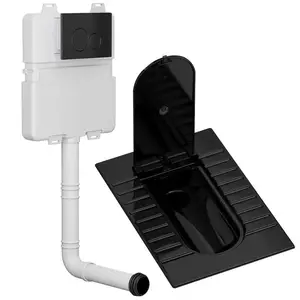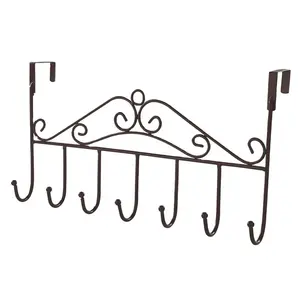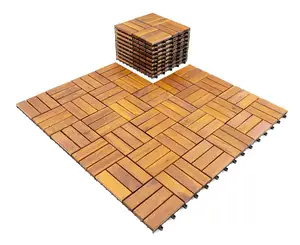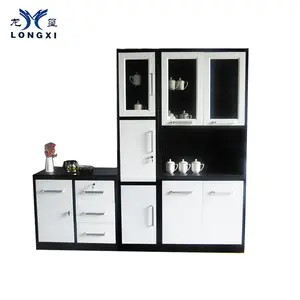Phổ biến trong ngành của bạn






Ống Nhựa Pvc Cấp Nước Áp Lực 4 Inch 6 Inch Của Nhà Sản Xuất Phụ Kiện Chất Lượng Cao Ống Nhựa Pvc Thoát Nước
0,19 US$ - 6,45 US$
Đơn hàng tối thiểu: 5000 Mét






Trung quốc sản xuất 5 inch uPVC ống thoát nước và cung cấp nước PVC Ống
2,50 US$ - 5,00 US$
Đơn hàng tối thiểu: 1000 Mét







Ống nước PVC 100m ống PVC với đầu tròn 16mm uPVC cpvc PPR Upp Vật liệu hàn & keo kết nối thoát khí ứng dụng
0,25 US$ - 0,27 US$
Đơn hàng tối thiểu: 1000 Mét







Chịu nhiệt và chịu nén ống thủy lợi ống nhựa PVC ống nước
0,25 US$ - 0,27 US$
Đơn hàng tối thiểu: 1000 Mét







PVC 6 inch 8 inch 10 inch 12 inch uPVC Nước ống nhựa cho tưới tiêu nông nghiệp cống ống PVC giá
0,60 US$ - 12,50 US$
Đơn hàng tối thiểu: 6 Mét







Vỏ Bọc UPvc/Màn Hình/Ống Hàn 50-400Mm Dùng Cho Giếng Nước Sâu Và Khoan Có Ren Ống Thả Đầu
6,00 US$
Đơn hàng tối thiểu: 1 Mét






Khoan uPVC màu xanh nước cũng vỏ ống chủ đề kín ống PVC
0,23 US$ - 9,00 US$
Đơn hàng tối thiểu: 1000 Mét






Nhà Máy Trung Quốc Cung Cấp Lịch Trình 25 40 60 Kích Thước Nước Vâng PVC Ống
0,32 US$ - 46,80 US$
Đơn hàng tối thiểu: 100 Mét






Tùy chỉnh màu sắc và kích thước Kích thước lỗ khoan giếng nước PVC vỏ ống và màn hình ống màu xanh cho nước cũng khoan
8,79 US$ - 9,89 US$
Đơn hàng tối thiểu: 50 Mét






Bán Sỉ Ống Nước UPVC Sch40 5 Inch 6 Inch 8 Inch Và Ống Bọc Giếng Sâu PVC Để Khoan Giếng Khoan
1,00 US$ - 18,00 US$
Đơn hàng tối thiểu: 100 Mét






20-800 mét PVC nước cũng Ống uPVC cũng vỏ/màn hình/soltted Ống
5,90 US$ - 10,80 US$
Đơn hàng tối thiểu: 200 Mét
Các tìm kiếm liên quan:


















Trung Quốc UPVC Ống Nhựa Nhà Cung Cấp SDR11 PN16 200Mm Áp Lực Cao Wate Vâng PVC Ống Để Cấp Nước
0,23 US$ - 2,65 US$
Đơn hàng tối thiểu: 100 Mét






140Mm Nước Khoan Giếng PVC Vỏ Bọc Nhựa UPVC Ống Màn Hình Ống
0,23 US$ - 2,53 US$
Đơn hàng tối thiểu: 100 Mét


















Ống Nhựa Pvc Astm 65Mm Đường Kính 75Mm 110Mm 140Mm 2Inch 5 Inch Giá Ống Nước Upvc
0,60 US$ - 19,50 US$
Đơn hàng tối thiểu: 6 Mét






Chống tĩnh PVC ống nước ống nước giếng 20 mét đến 120 mét đường kính thoát nước màu nhựa tinh khiết giá danh sách PVC hộp carton/
1,80 US$ - 2,50 US$
Đơn hàng tối thiểu: 100 Mét
Vận chuyển mỗi chiếc: 0,88 US$






9.6mm đến 11mm Độ dày chất lượng cao cấp bán buôn uPVC nông cũng vỏ ống | Ống nhàm chán uPVC để mua số lượng lớn
54,00 US$
Đơn hàng tối thiểu: 500 Cái






Ống Màn Hình Vỏ Bọc Nhựa Pvc Inch Nước Với Lịch Trình Giá Cả Upvc Sâu Và Khoan 1 Cho 3 80 Màu Xanh Lá Cây Cao 3/4 Ống Thả Ren
6,00 US$
Đơn hàng tối thiểu: 1 Centimét






Màu xanh PVC đổ thức ăn gia súc PVC/uPVC Ống sản xuất ống áp lực cao cho cấp nước khoan lỗ màn hình PVC nước cũng màn hình ống
3,35 US$ - 4,20 US$
Đơn hàng tối thiểu: 500 Mét






Ống Nước Upvc SCH80 Chất Lượng Cao Pvc Pvc 2 "3" 4 "6" Chất Lượng Cao
0,35 US$ - 4,20 US$
Đơn hàng tối thiểu: 500 Mét






3 "SCH 40 PVC Ống 125mm 5inch nước cũng vỏ ống 168mm 6inch uPVC Ống cũng vỏ lỗ khoan
18,00 US$ - 35,00 US$
Đơn hàng tối thiểu: 2000 Mét





Nhựa PVC UPVC Màu Xanh Threaded Khoan Nước Vâng Rãnh Lọc Màn Hình Ống Và Vỏ Ống
0,62 US$
Đơn hàng tối thiểu: 200 Mét










Sản Phẩm Mới Vỏ Bọc Và Màn Hình Ống Màu Xanh 125/140/160 Mm Khe Cắm PVC Nước Cũng Trung Quốc Nhà Sản Xuất Với Giấy Chứng Nhận CE
0,55 US$ - 18,89 US$
Đơn hàng tối thiểu: 1000 Mét






Tùy biến nhiệt nhiệt u-pvc nhựa uPVC nước giếng khoan khía Màn hình ống PVC vỏ ống cho nước khoan
0,59 US$ - 0,60 US$
Đơn hàng tối thiểu: 10 Mét






Sdr21 8 Inch 200 Mm 125Mm 200 Mm 150Mm Upvc Trắng Màu Xanh Màn Hình Màu Vít End Sâu Cũng Vỏ Chủ Đề Kín PVC Vỏ Ống
0,23 US$ - 2,65 US$
Đơn hàng tối thiểu: 100 Mét
Vận chuyển mỗi chiếc: 46.000,00 US$






Cung cấp cho chinapvc-u ống nước uPVC ống thoát nước PVC ống thoát nước
0,50 US$ - 0,58 US$
Đơn hàng tối thiểu: 500 Mét






OEM Kích thước nhà sản xuất nhà máy nước giếng uPVC Ống giá 1 inch
1,00 US$ - 10,00 US$
Đơn hàng tối thiểu: 500 Mét
Vận chuyển mỗi chiếc: 17,55 US$






Thương hiệu Mới 24 inch Đường kính ống dẫn điện uPVC nước cũng PVC Ống
0,10 US$ - 0,50 US$
Đơn hàng tối thiểu: 1 Cái
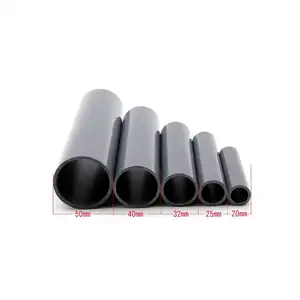


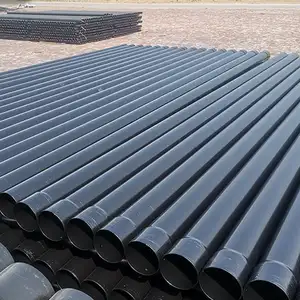


Boxi áp lực cao sâu cũng PVC uPVC cpvc Ống tưới tiêu cho cấp nước PVC ống nhựa
0,03 US$ - 0,36 US$
Đơn hàng tối thiểu: 100 Mét






6 inch 1 1/2 110mm Đường kính PP-R HDPE PVC nhựa gấp ống cống Thổ Nhĩ Kỳ phụ kiện vệ sinh cho đường ống nước tốt
0,20 US$ - 0,23 US$
Đơn hàng tối thiểu: 100 Mét






Ống Nhựa Ống Giếng Khoan PVC 400Mm Giá Ống Nước UPVC 8 Inch Để Cấp Nước Thoát Nước Tưới Tiêu
0,52 US$ - 0,87 US$
Đơn hàng tối thiểu: 1000 Mét






Yfang 20-800 mét PVC nước cũng Ống uPVC cũng vỏ/màn hình/soltted Ống
0,06 US$ - 0,09 US$
Đơn hàng tối thiểu: 100 Túi






Nhà Máy Nhà phân phối ống PVC-U 90mm 110mm uPVC ống nước PVC tổng hợp ống cho nước giao hàng
0,10 US$ - 10,00 US$
Đơn hàng tối thiểu: 500 Mét






Kết nối vòng cao su đường kính lớn uPVC đường ống thoát nước lịch trình 80 Ống khoan PVC
0,60 US$ - 1,00 US$
Đơn hàng tối thiểu: 100 Cái
Các danh mục hàng đầu
Giới thiệu về nước giếng upvc ống
Truy cập Alibaba.com để có được chất lượng tối ưu nước giếng upvc ống. Độ bền lâu dài và khả năng hoạt động làm cho các sản phẩm này trở thành lựa chọn lý tưởng cho hệ thống ống nước và truyền chất lỏng công nghiệp. Cửa hàng cung cấp nhiều lựa chọn thay thế đường ống với giá cả cạnh tranh cho các mục đích công nghiệp và bán lẻ. Tìm kiếm các giải pháp cải tiến hoặc kỹ thuật cho quản lý dự án, sản xuất hoặc dịch vụ hiện trường, nước giếng upvc ống là lựa chọn tốt nhất.
nước giếng upvc ống đã phát triển trong nhiều năm thành một vật liệu tiên tiến, sáng tạo cung cấp một giải pháp thay thế tuyệt vời cho đường ống truyền thống của ngành. Một số loại sản phẩm mà Alibaba.com cung cấp bao gồm đường ống nhựa nhiệt dẻo dùng cho xăng dầu và đường ống dẫn hơi bằng thép. Các mô hình sợi thủy tinh và polyethylene ba lớp cũng có sẵn. Các mặt hàng này có khả năng chống lại tất cả các hóa chất liên quan đến vận chuyển nước và hydrocacbon.
Những nước giếng upvc ống này cũng thân thiện với việc bảo trì vì tuổi thọ của vật liệu có thể kéo dài 20 năm khi lắp đặt trên bề mặt và 50 năm khi chôn lấp. Quá trình cài đặt khá đơn giản vì hầu hết các sản phẩm yêu cầu một đội nhỏ. Kết quả là, chỉ có một tác động môi trường nhỏ và chi phí lao động cần thiết rất ít. Đó là bởi vì ống cơ sở có thành mỏng và trọng lượng nhẹ. Có thể sử dụng cách tiếp cận dựa trên thời gian cài đặt. Quan trọng nhất, nó có khả năng chống mài mòn do tính đàn hồi của lớp lót composite.
nước giếng upvc ống tại Alibaba.com cung cấp một sản phẩm thiết yếu cho lĩnh vực công nghiệp, phục vụ nhu cầu cơ sở hạ tầng nhiên liệu và nước. Các mặt hàng được cung cấp có chất lượng cao và phù hợp với các tiêu chuẩn môi trường. Tận dụng các chức năng tìm kiếm và lọc nâng cao để tìm đá quý có giá cạnh tranh.
nước giếng upvc ống đã phát triển trong nhiều năm thành một vật liệu tiên tiến, sáng tạo cung cấp một giải pháp thay thế tuyệt vời cho đường ống truyền thống của ngành. Một số loại sản phẩm mà Alibaba.com cung cấp bao gồm đường ống nhựa nhiệt dẻo dùng cho xăng dầu và đường ống dẫn hơi bằng thép. Các mô hình sợi thủy tinh và polyethylene ba lớp cũng có sẵn. Các mặt hàng này có khả năng chống lại tất cả các hóa chất liên quan đến vận chuyển nước và hydrocacbon.
Những nước giếng upvc ống này cũng thân thiện với việc bảo trì vì tuổi thọ của vật liệu có thể kéo dài 20 năm khi lắp đặt trên bề mặt và 50 năm khi chôn lấp. Quá trình cài đặt khá đơn giản vì hầu hết các sản phẩm yêu cầu một đội nhỏ. Kết quả là, chỉ có một tác động môi trường nhỏ và chi phí lao động cần thiết rất ít. Đó là bởi vì ống cơ sở có thành mỏng và trọng lượng nhẹ. Có thể sử dụng cách tiếp cận dựa trên thời gian cài đặt. Quan trọng nhất, nó có khả năng chống mài mòn do tính đàn hồi của lớp lót composite.
nước giếng upvc ống tại Alibaba.com cung cấp một sản phẩm thiết yếu cho lĩnh vực công nghiệp, phục vụ nhu cầu cơ sở hạ tầng nhiên liệu và nước. Các mặt hàng được cung cấp có chất lượng cao và phù hợp với các tiêu chuẩn môi trường. Tận dụng các chức năng tìm kiếm và lọc nâng cao để tìm đá quý có giá cạnh tranh.
